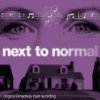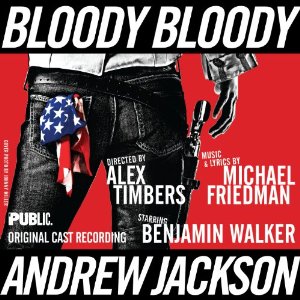SITE GUIDE
SEARCH
REVIEWS
REVIEW ARCHIVES
ADVERTISING AT CURTAINUP
FEATURES
NEWS
Etcetera and
Short Term Listings
LISTINGS
Broadway
Off-Broadway
NYC Restaurants
BOOKS and CDs
OTHER PLACES
Berkshires
London
California
New Jersey
DC
Connecticut
Philadelphia
Elsewhere
QUOTES
TKTS
PLAYWRIGHTS' ALBUMS
LETTERS TO EDITOR
FILM
LINKS
MISCELLANEOUS
Free Updates
Masthead
A CurtainUp Review
Picked
By Elyse Sommer
|
Well — I'm sure there are a lot of unhealthy reasons I wanted to be an actor, but that one —
to get at the truth — that's the one I try to honor. . ..— Kevin
|

Michael Stahl-David &Liz Stauber
(Photo: Carol Rosegg) |
Shinn certainly can't be accused of repeating himself. With each new play he tackles a fresh set of characters and issues. In Picked he's written an astutely named story about Kevin (Michael Stahl-David), a young actor who's picked out of the vast sea of wannabes for the lead part in a big budget movie helmed by John (Mark Blum), a well-known director. It's what every actor yearns for but as Shinn seess it, being picked has its down side, especially so with this lucky actor. You see, Kevin is extremely sensitive and has a determined sort of true-to-yourself honesty that hasn't exactly made anyone eager to cast him — though it's what appealed to John as a perfect fit for his latest project.
Picked's Cinderella is not only sensitive to a fault but the sort of worrywart who tends turn and twist things around in his mind. So when he catches the gold ring on tinsel town's merry-go-round it's up to his girlfriend Jen (Liz Stauber), an actress who's retained her upbeat spirit through two years of waiting tables, to prod him into ignoring the half-empty glass aspect of being picked, the most worrisome being that this big opportunity comes with an exclusive contract for however long it takes to complete the movie.
As it turns out Kevin was right to worry. His "getting picked" entails something of a Faustian bargain, with the ring on that merry-go-round proving to be gold plated rather than pure gold. Since John is smitten with the idea of creating a new-new thing type futuristic film involving humanoid robots and intergalactic spacecraft (Think blockbusters like Star Trek!) by using neuroscience.
Part of John's concept is to have Kevin play both the hero and the villain as a means for "getting an audience to see themselves in both characters — because it's all from one soul." This also puts a new spin on the title. The endless director-actor conversations which John hopes to synchronize with the newfangled neuroscientific imaging technology or what he calls "the brain stuff" are geared to tap into hidden truths about the actor's unconscious. Being the sort of navel-gazer he is, Kevin is an easy prey for having his brain thus picked by the grandise, truth evading john
No mention is made of the potential physical danger inherent in this experimental methodology, but it's clear that Kevin's concerns about being out of the job pool for a long time were not unfounded. It takes two years before the movie is finished and he is free to entertain the offers John assures him will be plentiful given his involvement with this high profile project.
Without going into too much detail, it should come as no big surprise that John symbolizes a world (Hollywood specifically, but it could as easily be a large law firm) where those in power drain the young and ambitious dry and often water down or fail to deliver on their promises. In this case the watering down process begins when John keeps interrupting Kevin and switches off totally when the dark stuff he says he's looking for comes up; worse yet, he changes his mind about one actor playing the bad as well as the good guy and brings Nick (Tom Lipinski), another hungry young actor on board to share the credit.
Given Shinn's propensity for Gay relationships, the evolving Kevin-Jen situation and the way Kevin and Nick relate to each other, seems to head Picked in that direction. However, as Kevin realizes that being picked to star in an important movie should be a sure-fire career building and satisfying experience but that this is "not how things work," so the viewer shouldn't expect that the situations Mr. Shinn sets up will work out as expected. Unfortunately, neither does any of this work out to be as dramatically interesting as it should be. When the movie finally has its premiere and Kevin, in one of his typical worrywart moods asks Jen if she didn't find it "boring — like there wasn’t enough tension," the loyal Jen assures him it was fine, but I found myself wishing Shinn and Wilson had worked a little harder to avoid similar questions about moving Picked from page to stage.
Ultimately, Kevin stays the course through all of John's probing and turnarounds and, though he's not a schmoozer, even the post-premiere publicity duties. But though Kevin is the central character, this is also Nick's and Jen's story. What we see is three young people with the same hopes and dreams, each dealing with the realities of those dreams according to their ability to adapt to and deal with the compromises that are part of the Hollywood dream factory.
The four key characters are well performed but the actor who most enlivens the play is Mark Blum. One of the theater's most versatile character actors, Blum isn't the one who'd first come to mind to play a "we'll get lunch" type Hollywood director. So, bravo to whoever cast him, for he perfectly captures John's self-serving charm and crassness. The city's former First Lady and TV broadcaster, Donna Hanover, is fine In two bit parts (a TV personality and a casting director) though both roles could easily have been taken on by Ms. Straube with a quick wig and costume change.
Rachel Hauck's single dominating set piece, a white sectional couch, is quite a shape shifter. But over the course of two acts and eleven scenes, all that between scenes reconfiguration of this prop become tiresome and distracting. Hauck's slick back panel and flashily lit area in front of and slightly below the platform that's the main playing area doesn't really do anything to support the actors or the story. A simple projection screen to announce the date of each scene would have done a better job of letting us more clearly understand Kevin's journey. It's a thought provoking journey though it's not one likely to be a must-see pick in a season with so much to pick from.
Links to Christopher Shinn plays reviewed at Curtainup.
Four/Shinn--2002
What Didn't Happen 2002-- also directed by Micahel Wilson
Where Do We Live - 2004
On the Mountain/Shinn - 2005
Dying City-2007
Now or Later --2008
|
Picked Written by Christopher Shinn' Directed by Michael Wilson Cast: Mark Blum (John), Michael Stahl-David (Kevin), Donna Hanover (Casting Director/TV Personality), Tom Lipinski (Nick), and Liz Stauber (Jen) Set design by Rachel Hauck Costume design by Mattie Ullrich Lighting design by Russell H. Champa Sound design by Jill BC DuBoff Stage Manager Cole Bonenberger Running Time: 2 hours, including one intermission The Vineyard 108 E. 15 St. 212-353-0303 http://www.vineyardtheatre.org From 4/05/11; opening 4/20/11; closing 5/15/11 Tues @ 7pm, Wed-Sat @8pm; Sat. and Sun ! 3pm Ticket Price: $65. Reviewed by Elyse Sommer at April 16th press performance |
|
REVIEW FEEDBACK Highlight one of the responses below and click "copy" or"CTRL+C"
Paste the highlighted text into the subject line (CTRL+ V): Feel free to add detailed comments in the body of the email. . .also the names and emails of any friends to whom you'd like us to forward a copy of this review. Visit Curtainup's Blog Annex For a feed to reviews and features as they are posted add http://curtainupnewlinks.blogspot.com to your reader Curtainup at Facebook . . . Curtainup at Twitter Subscribe to our FREE email updates: E-mail: esommer@curtainup.comesommer@curtainup.com put SUBSCRIBE CURTAINUP EMAIL UPDATE in the subject line and your full name and email address in the body of the message. If you can spare a minute, tell us how you came to CurtainUp and from what part of the country. |

Slings & Arrows-the complete set
You don't have to be a Shakespeare aficionado to love all 21 episodes of this hilarious and moving Canadian TV series about a fictional Shakespeare Company






